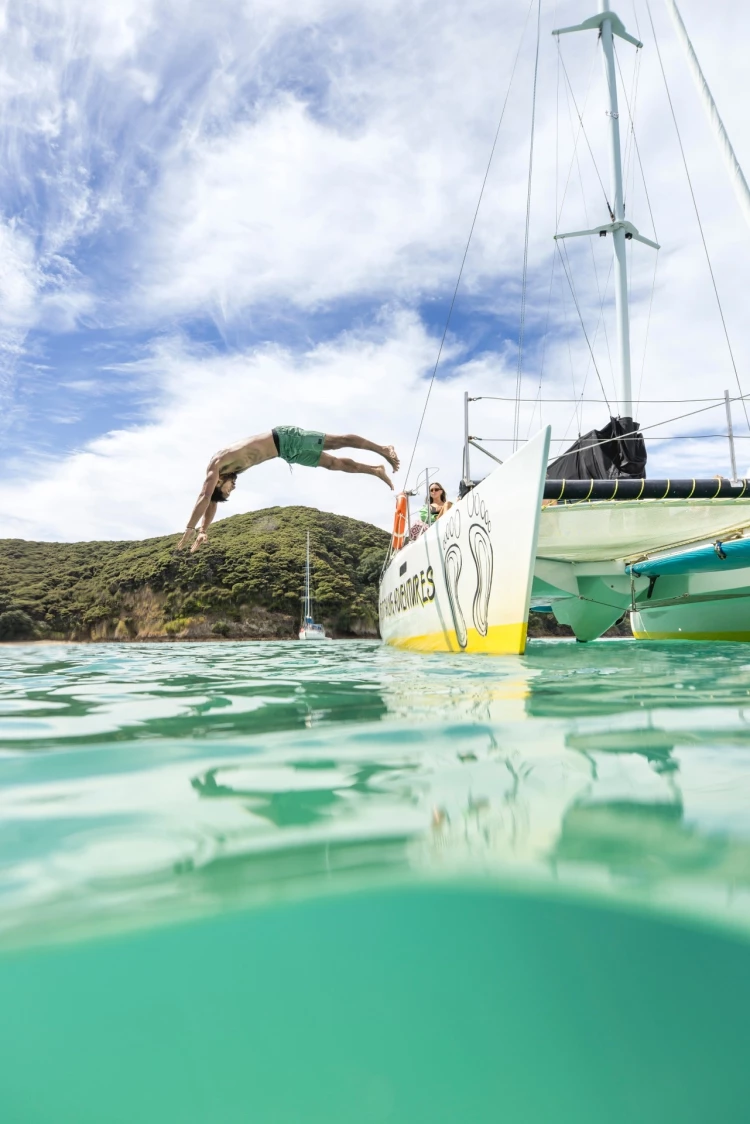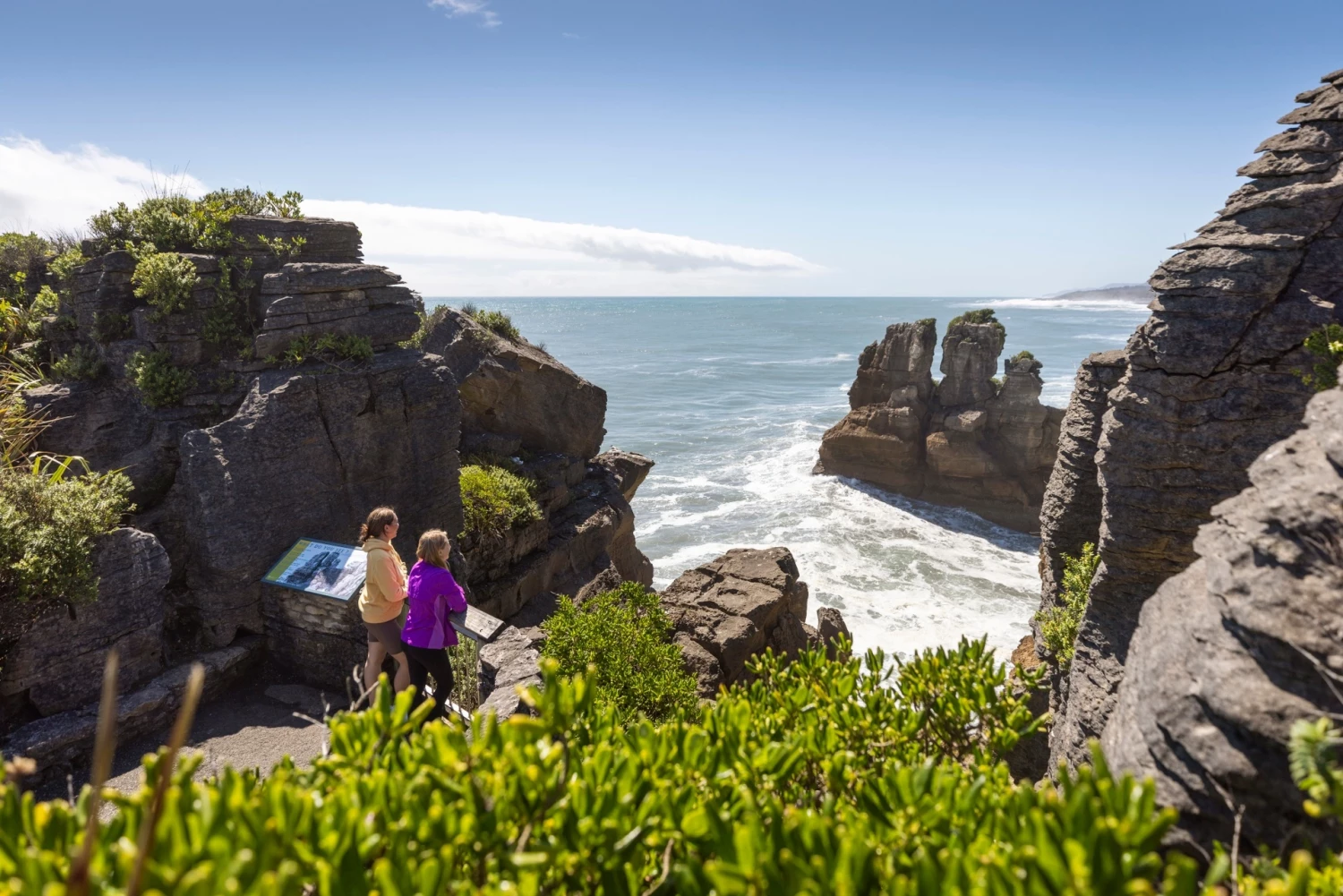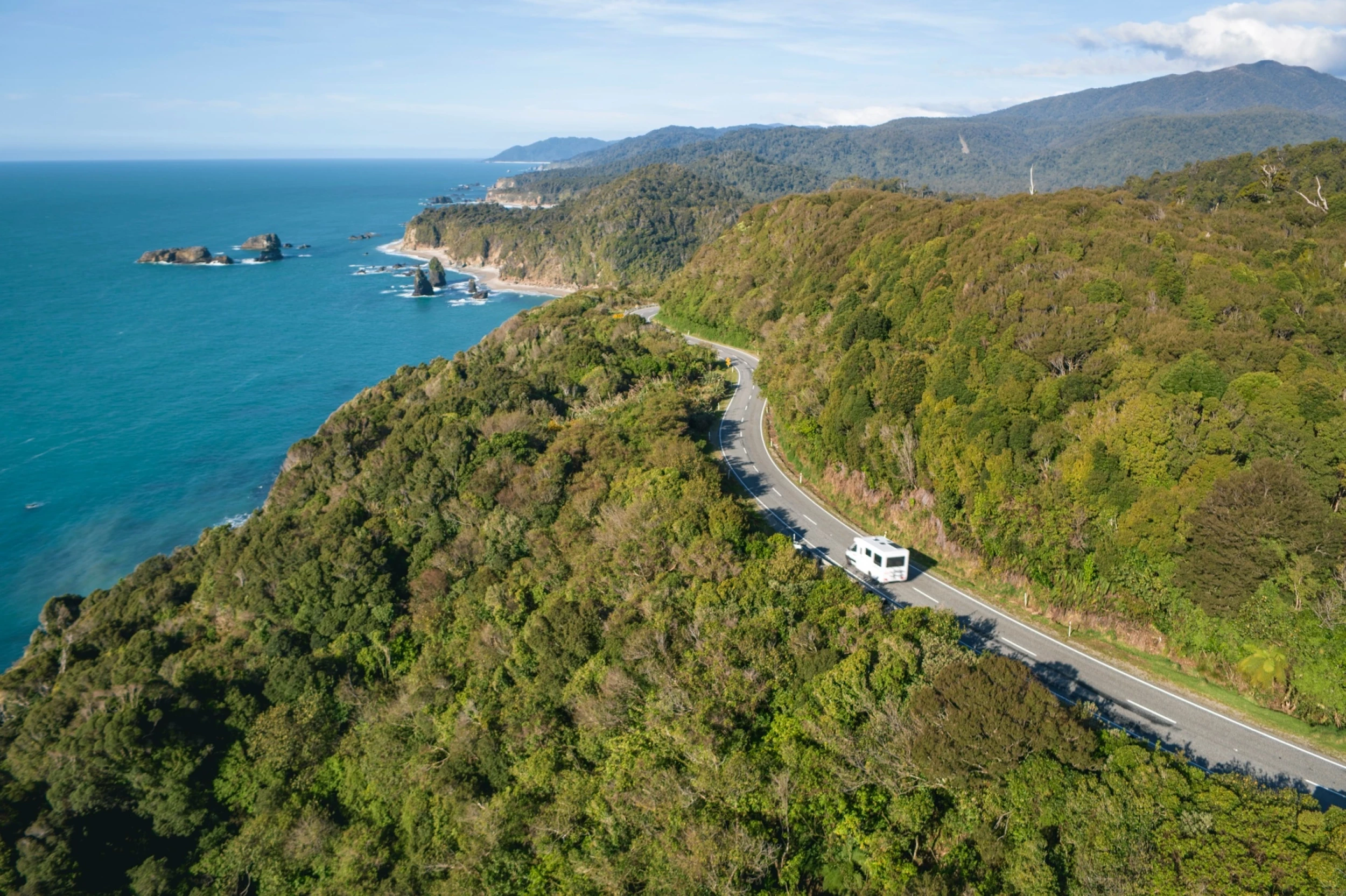- About Health New Zealand
- Locations
- Allied Health
- Midwifery & Nursing
-
Medical Officers
- All Senior Medical Officers (SMOs)
- Anaesthetists
- Dermatologists
- Emergency Medicine Specialists
- GPs & Rural Hospital Doctors
- General Medicine
- Obstetricians & Gynaecologists
- Oncologists
- Paediatricians
- Pain Medicine Specialists
- Pathologists
- Psychiatrists
- Radiologists
- Surgical Specialities
- Resident Medical Officers (RMOs)
- Specialist Teams

Physiotherapy
Level up your career and lifestyle and deliver a first-rate service to our communities as a Physiotherapist in New Zealand - Aotearoa. It’s an exciting time for the profession and we’re looking for dynamic and forward-thinking registered Physiotherapists to help make positive change happen.
Photo location: Wānaka, Otago - Credit: Miles Holden
About the role
Our Physiotherapists use techniques that help restore movement and function working to help people regain their ability to have a quality life and maintain movement following an injury, manage pain, and ongoing disease management. Whether this is to prevent hospital admissions or to prevent ongoing deterioration our teams provide support to people of all ages affected by injury, illness or disability.
In Aotearoa New Zealand, Physiotherapists work across different areas both within the public system (Health New Zealand - Te Whatu Ora) and in the private system as well as self-employed in private practices.
Within our public system, Physiotherapists work in a range of different settings, from our acute hospitals to our rural hospitals, and into well-established community teams.
The health system recognises the value physiotherapy adds to health and is actively investing in developing the profession.
Being a comparatively small nation, our Physiotherapists have the ability to drive change and be at the forefront of innovation of services that influence their local communities.
Digital health is just one way we support our communities.

Salary, leave & benefits
Salary
Physiotherapists have a multi-step progression salary scale based on experience and role responsibilities.
- Salaries range from NZD $59,035 to $100,522 per annum
Designated or Senior Physiotherapists (e.g. Clinical Leaders, Professional Advisors) may earn above this scale, depending on the scope and location of the role.
Additional payments may apply for penal rates, call-backs and higher duties where relevant.
Allowances
- Higher duties and on-call allowances, where applicable
Leave
-
Four weeks of paid annual leave (increases to five weeks after five years of service)
-
Shift workers may receive up to five additional days of annual leave after 12 months of continuous shift work
-
A minimum of ten days of paid sick leave per year
-
Parental leave of up to twelve months, depending on service length
-
Fourteen weeks of paid parental leave
Additional benefits
-
Reimbursement of your professional registration and Annual Practising Certificate (APC) costs
-
Health New Zealand provides professional indemnity cover
-
20 hours per annum for Continuing Professional Development (CPD)
-
If eligible, a minimum 3% employer superannuation contribution
-
Twelve paid public holidays, plus time in lieu if rostered on
Physiotherapy collective agreement
In New Zealand, the salary and working conditions of most public sector Physiotherapists are covered by a collective agreement between Health New Zealand | Te Whatu Ora and the Public Service Association (PSA).
You can view the full Physiotherapists’ collective agreement on the Health New Zealand website.
Expanded scopes of practice
Some Physiotherapists may be eligible to work in expanded or advanced scopes of practice, such as:
- Extended rehabilitation programmes
- Prescribing within defined parameters (if approved)
- Advanced clinical specialties such as cardiorespiratory, neurology or paediatrics
Expanded scopes may require postgraduate study and approval from the Physiotherapy Board of New Zealand.
Physiotherapy professional body
Visit Physiotherapy New Zealand for resources, networking and professional support.
Roles & responsibilities
Governance & professional standards
-
Work within the scope of practice defined by the Physiotherapy Board of New Zealand
-
Maintain competence in line with the Board’s standards and recertification requirements
-
Comply with supervision requirements, particularly for new graduates and return-to-practice clinicians
-
Hold an approved qualification and a current Annual Practising Certificate (APC)
Cultural competency & community engagement
-
Understand and apply Te Tiriti o Waitangi (the Treaty of Waitangi) principles in clinical practice
-
Engage respectfully with Māori, Pacific Peoples and other local communities to support equitable health outcomes
-
Support culturally safe care through reflective practice and ongoing learning
Assessment & rehabilitation planning
-
Conduct functional, neurological and musculoskeletal assessments
-
Develop, implement and review individualised treatment and rehabilitation plans
-
Collaborate with patients and whānau (families) to set achievable therapy goals
Therapeutic intervention & education
-
Deliver evidence-based physiotherapy interventions to improve mobility, strength and function
-
Provide education on injury prevention, self-management and assistive equipment use
-
Prescribe exercises and activities tailored to individual needs and goals
Monitoring & outcomes tracking
-
Monitor progress against treatment goals using clinical outcome measures
-
Adapt interventions based on response, recovery and feedback
-
Contribute to discharge planning and recommendations for ongoing care or community support
Interdisciplinary collaboration
-
Work as part of multidisciplinary teams across hospital, outpatient and community settings
-
Liaise with medical, nursing and allied health professionals to support integrated care
-
Contribute to team meetings, case discussions and discharge planning
Emergency & acute care support
-
Respond to referrals for acute physiotherapy input (e.g. respiratory care, mobility assessments)
-
Support early mobilisation and fall prevention strategies in hospital settings
-
Contribute to safe transfer and discharge decisions
Teaching, leadership & quality improvement
-
Supervise students and junior physiotherapists in clinical settings
-
Participate in peer review, in-service education and continuing professional development
-
Contribute to audits, research, risk management and service improvement activities
Documentation & professional conduct
-
Maintain accurate and timely clinical records in line with organisational policies
-
Respect patient confidentiality and comply with data privacy legislation
-
Communicate clearly and professionally with patients, whānau and team members
Expanded scope & advanced practice
-
Develop advanced clinical skills in areas such as cardiorespiratory, neurology or pain management
-
Explore extended scope roles (e.g. prescribing, advanced assessment, vocational rehabilitation)
-
Undertake postgraduate training and credentialling for advanced practice positions
Required qualifications & experience
Physiotherapist qualification
You must hold an approved qualification in physiotherapy. Common pathways include:
-
A Bachelor of Physiotherapy or Bachelor of Health Science (Physiotherapy) from a New Zealand institution (e.g. University of Otago, Auckland University of Technology, Wintec)
-
An internationally recognised physiotherapy qualification assessed as equivalent by the Physiotherapy Board of New Zealand
Registration with the Physiotherapy Board of New Zealand
All Physiotherapists must be registered with the Physiotherapy Board of New Zealand to practise legally.
Applicants must submit evidence of qualifications, identification and fitness to practise. International applicants may be required to complete an assessment process, including supervised practice.
Annual Practising Certificate (APC)
To practise as a Physiotherapist in New Zealand, you must hold a current Annual Practising Certificate (APC), which is renewed annually.
To maintain your APC, you must:
-
Demonstrate ongoing competence
-
Participate in Continuing Professional Development (CPD)
Useful links
Information for international candidates
Internationally qualified candidates
Internationally qualified Physiotherapists include practitioners who hold recognised physiotherapy qualifications from countries such as the United Kingdom, Australia, Canada and South Africa, and:
-
Have at least two years (approximately 3,680 hours) of relevant post-qualification clinical experience
-
Are registered and in good standing with their home country’s regulatory authority (for example, the Health and Care Professions Council (HCPC) in the UK)
Applicants with less than two years’ experience can still apply and will be individually assessed by the Physiotherapy Board of New Zealand. This assessment may include a period of supervised practice or additional evaluations.
Qualifications from other countries are assessed on a case-by-case basis to determine if they meet New Zealand registration requirements. The Physiotherapy Board uses a standard set of criteria for this assessment. Learn more about how to register.
Physiotherapists with different or overlapping scopes of practice may be eligible to apply to work within the boundaries of their approved scope as defined by the Board.
Find out more about life in New Zealand
We have a page dedicated to providing candidates with information about the recruitment process, requirements to work in New Zealand, and key details about relocating. Learn more here.
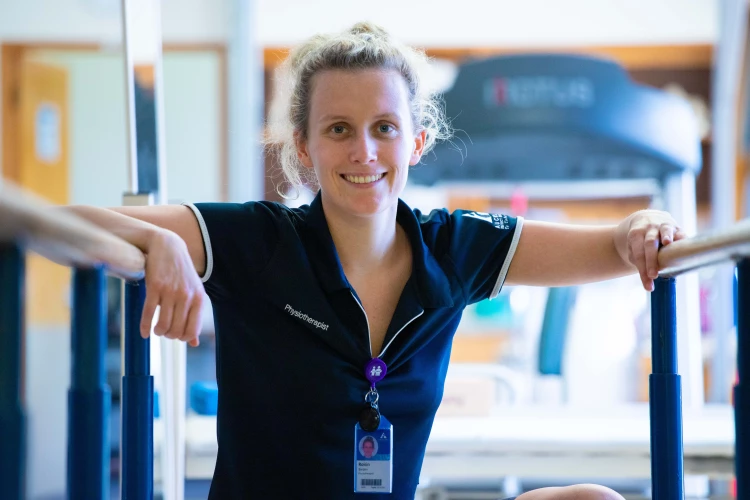
Apply for a Physiotherapist role
Domestically Trained Candidates
If you trained in New Zealand or Australia, search current vacancies with our districts to apply for here:
Internationally Trained Candidates
If you trained outside of New Zealand or Australia, register through our International Recruitment Centre here:


Looking to move to New Zealand to work as a Physiotherapist?
Great news! Physiotherapists are on Tier 1 of New Zealand's Green List which means you are eligible for a fast-tracked Straight to Residence Visa. This means you and your family can apply for New Zealand residency before you arrive, provided you have a job offer from an accredited employer, like us!
Working at Health New Zealand
'Te Whatu Ora' translates from our indigenous Māori language to 'the weaving of wellness'; which is what we are all about in our holistic delivery of world-class care for the health and wellbeing of the 5 million Kiwis in our communities.
Health New Zealand has an open and non-hierarchical approach to improving outcomes for our patients. Our cross-disciplinary collaborative way of working fosters a positive work environment where all members of our team feel supported and empowered.
Our commitment to you
We are dedicated to building a team that is representative of the communities that we are serving. We are committed to supporting health equity in our communities. Our kaimahi (staff) thrives on the diversity and inclusion of all perspectives and cultures, and we welcome individuals from all backgrounds and lived experiences.
Health New Zealand has programmes and facilities available to both protect and improve our teams’ physical, mental and emotional health and wellbeing. We know that you do your best work when you’re feeling your best, so it’s important to us that this is a priority.

Explore Aotearoa
New Zealand - Aotearoa has been in the top 5 countries in the Global Peace Index every year since it launched in 2009, and has a broad range of places to call home, from the bustling metropolis of our main centres, to the easy-going vibe of our coastal or rural communities.
Find out more information about what part of our beautiful country is the best fit for you.
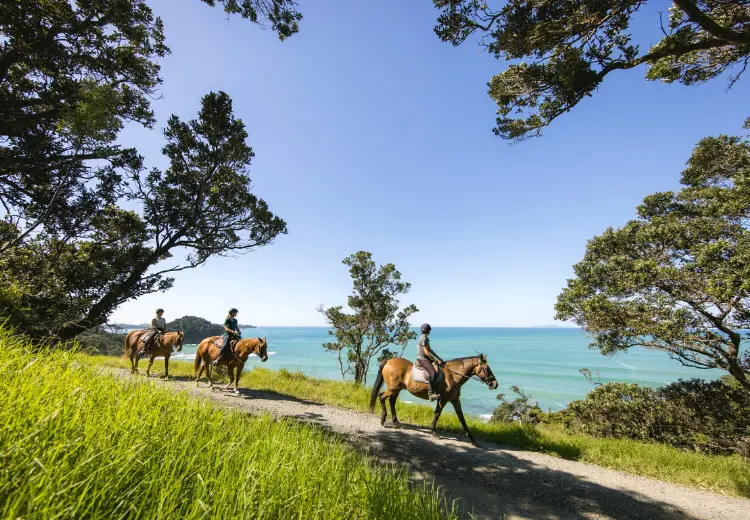
Te Tai Tokerau Northland
Population: 194,600
Northland is a beautiful and diverse region of Aotearoa, New Zealand with plenty to offer visitors. Whether you're interested in water sports, historic sites, natural beauty or ancient Kauri trees—Northland has it all!
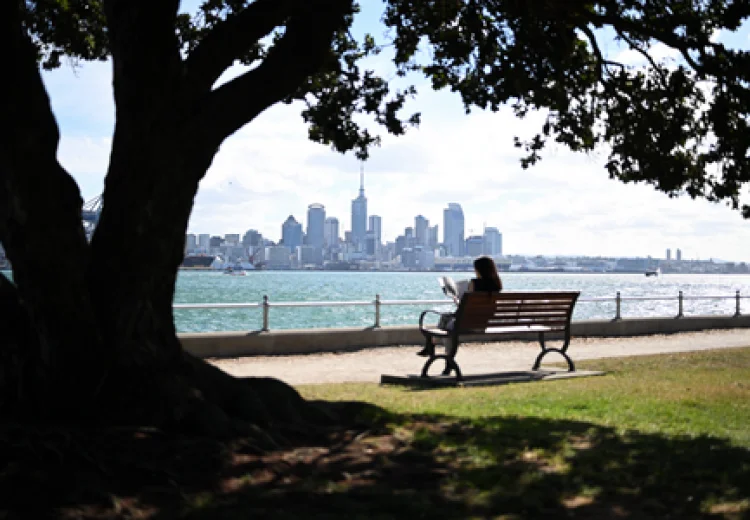
Waitematā
Population: 650,000
Waitematā is the largest and one of the most rapidly growing Districts serving the largest population of all Health New Zealand. Waitematā offers a balanced lifestyle that combines the convenience of city living with the natural beauty and community spirit of suburban life.

Te Toka Tumai Auckland
Population: 500,000
Auckland the "City of Sails" is Aotearoa, New Zealand’s largest city and commercial hub. It’s where metropolitan sophistication meets breathtaking natural beauty. Auckland is filled with a variety of warm and welcoming communities, packed with new places to explore.
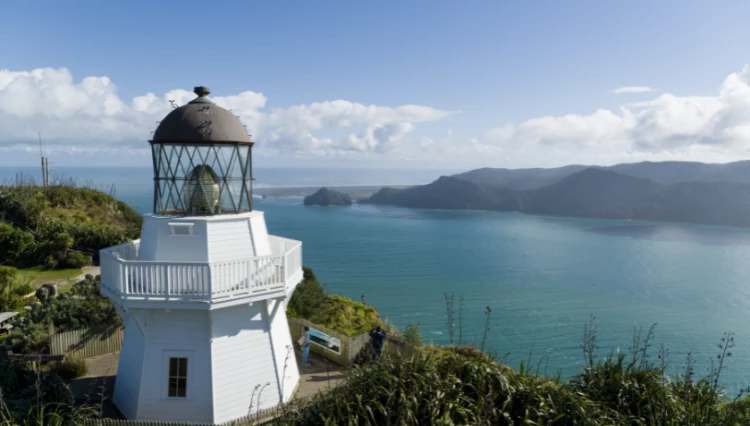
Counties Manukau
Population: 500,000
Counties Manukau is a vibrant place where there's never a dull moment! Living and working here ensures you're always close to amenities, events and nature. You'll never run out of places to visit or things to do.
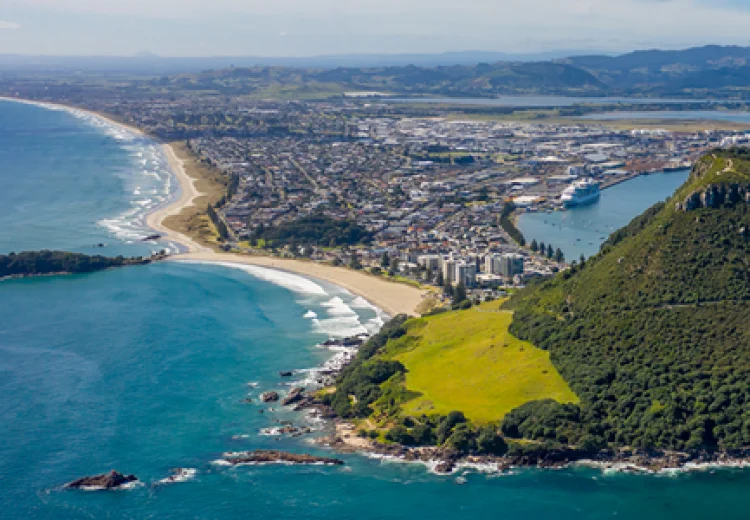
Hauora a Toi Bay of Plenty
Population: 255,110
The Bay of Plenty is a place of beautiful harbours, long surf beaches and an easygoing lifestyle. We showcase the perfect place to explore a wide range of nature-based pursuits – this gives the people of the Bay of Plenty the chance for a better work-life balance.

Waikato
Population: 425,000
The Waikato region is known for its natural beauty, rich Māori culture, and agricultural heritage with something to offer visitors of all interests.
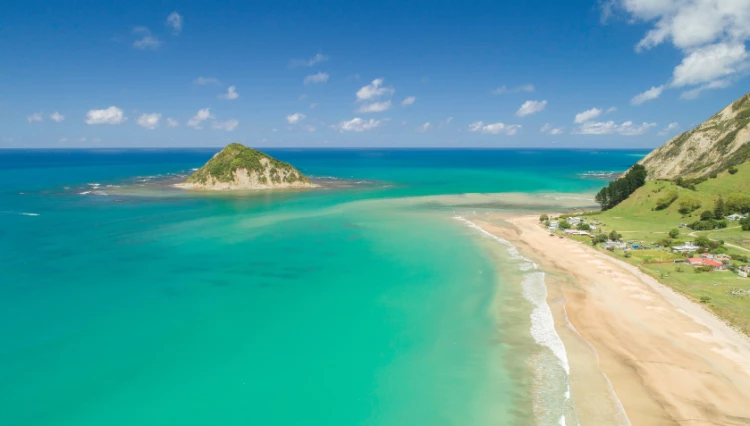
Tairāwhiti Gisborne
Population: 48,000
In family-friendly Tairāwhiti you will experience an easier pace to life that allows you to pause, reflect, and enjoy a true work-life balance. Gisborne’s relative isolation is its charm, surrounded by beaches & nature - don't worry though! Larger cities are only a quick flight away.

Lakes
Population: 110,000
The Lakes District is well known for its geothermal activity and natural hot springs. The area is located in the central North Island and is home to many geothermal attractions, such as geysers, hot mud pools, and steam vents. Visitors can also relax in the region's natural hot springs, which are believed to have healing properties.

Taranaki
Population: 130,000
Taranaki is a magical place with a majestic mountain at its heart, including the rugged coastline that's world-renowned for its surf. Its residents' love of art and culture, cafes and outdoor living mean it's also fantastic to work—and play!

Te Matau a Māui Hawke's Bay
Population: 180,000
Known for its world-class wineries, stunning beaches and temperate climate, Hawke’s Bay boasts a lifestyle that is unmatched. The region is a popular destination for food and wine tourism, hiking, cycling and cultural events such as the annual Art Deco festival.
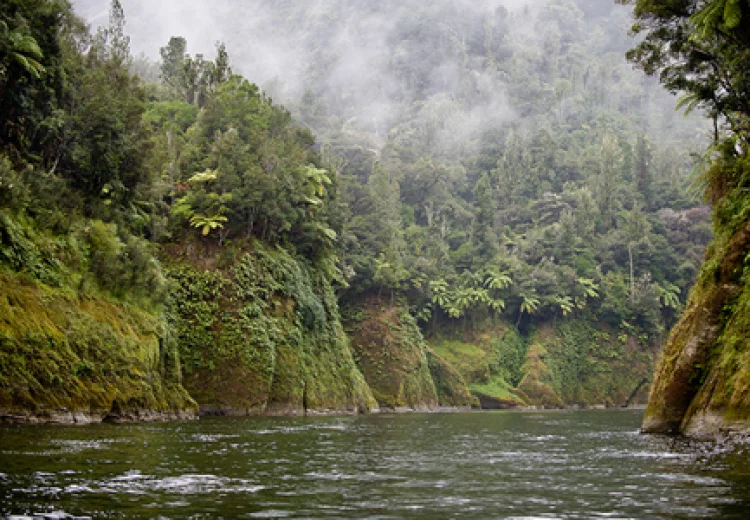
Whanganui
Population: 65,000
Whanganui has something for everyone. Our centrally located region offers access to outdoor activities such as kayaking, skiing, surfing, tramping, cycling, fishing and hunting. Nestled between two snow-capped mountains, on the banks of Whanganui River there is always plenty to do and explore.
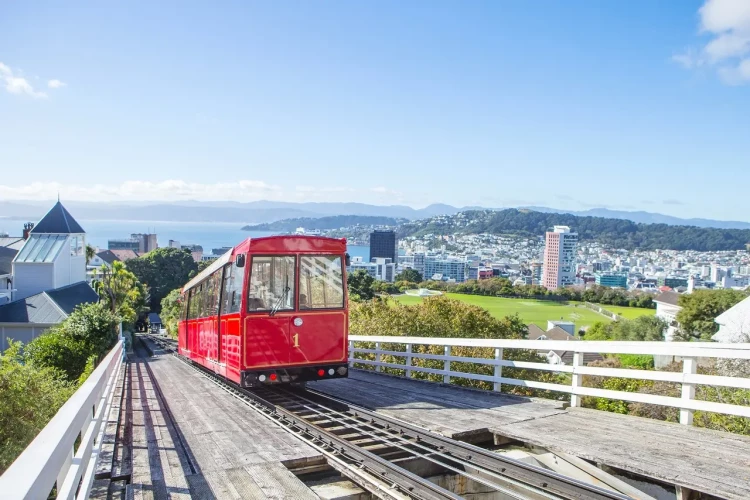
Capital, Coast and Hutt Valley
Population: 445,000
Wellington, the capital city of Aotearoa New Zealand, is a bustling and diverse hub of culture and cosmopolitanism, renowned for its lively cafés, restaurants, and internationally acclaimed sporting and cultural events, all set against the stunning backdrop of a natural harbour. To the north of Wellington lie the regions of Porirua, Kapiti, and Hutt Valley.
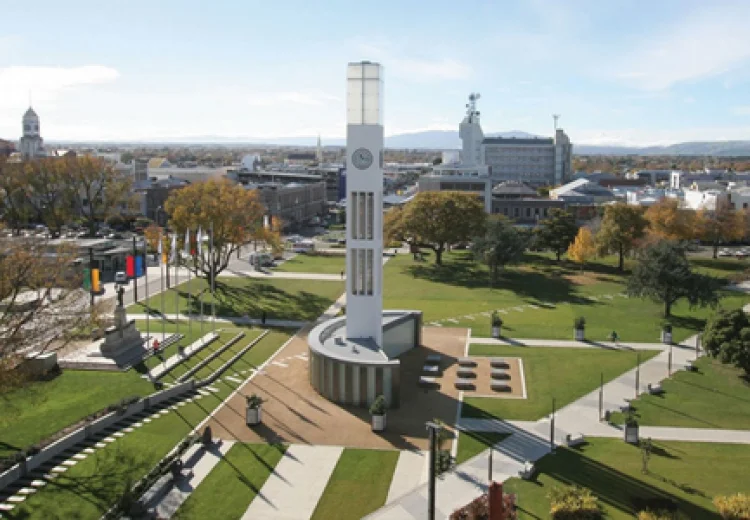
Te Pae Hauora o Ruahine o Tararua MidCentral
Population: 190,000
Get the best of both worlds - the perfect blend of rural and city living with the mountains, city and sea at your fingertips.
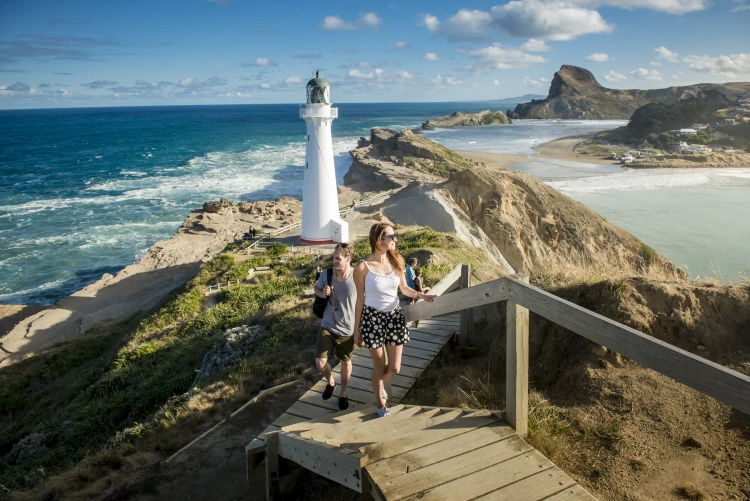
Wairarapa
Population: 48,000
From rugged coastlines, boutique vineyards to lush forests, Wairarapa is a slice of paradise for those who love the outdoors and seek a peaceful environment to recharge after a rewarding day's work.
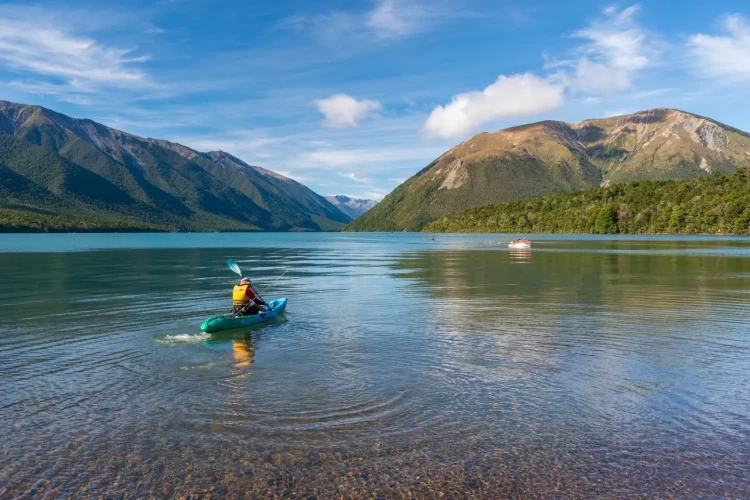
Nelson Marlborough
Population: 150,000
Nelson Marlborough has been dubbed the artistic capital with a thriving urban centre and one of New Zealand's sunniest regions.
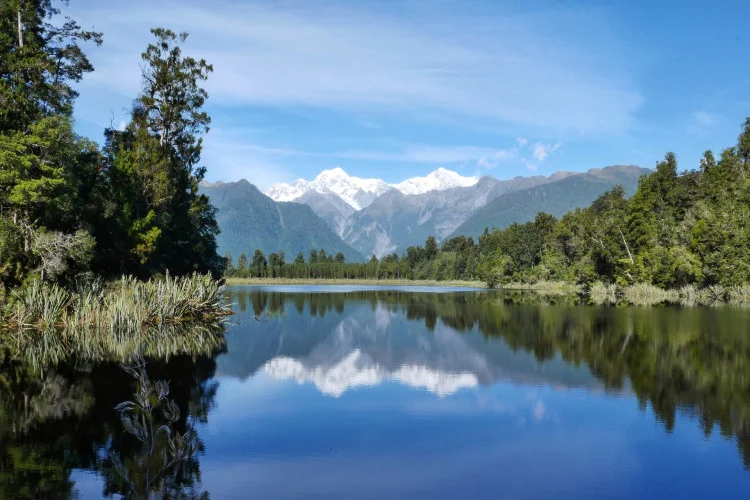
Te Tai o Poutini West Coast
Population: 32,000
Te Tai o Poutini West Coast has views of both the mountain ranges and the ocean! It is an untamed natural wilderness of beautiful rivers and rainforests, glaciers and geological treasures.
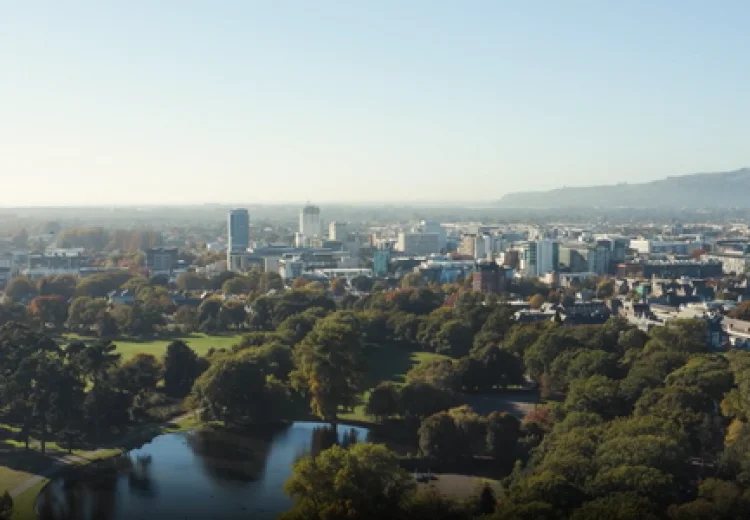
Waitaha Canterbury
Population: 600,000
The Canterbury region is a great place to live and work due to its natural beauty, vibrant economy, cultural diversity, strong community, and high quality of life.
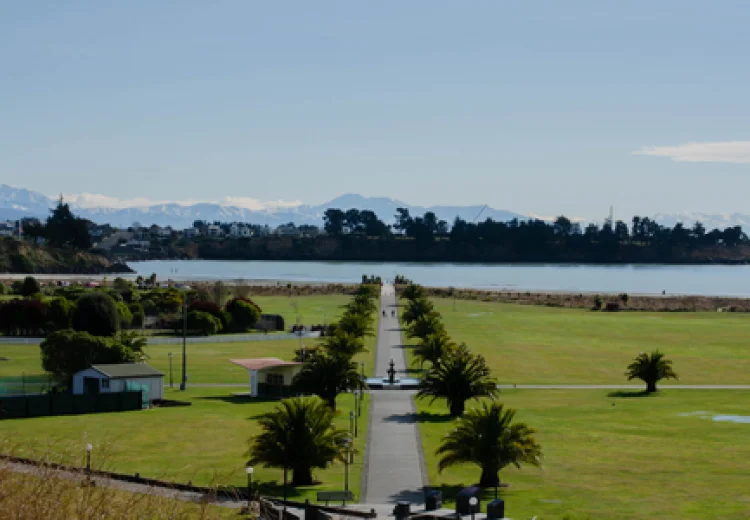
South Canterbury
Population: 62,000
The South Canterbury District is an area of stunning beauty with great lifestyle opportunities, a safe and welcoming family-friendly environment, affordable living, excellent educational opportunities and a wide range of cultural and sporting facilities.
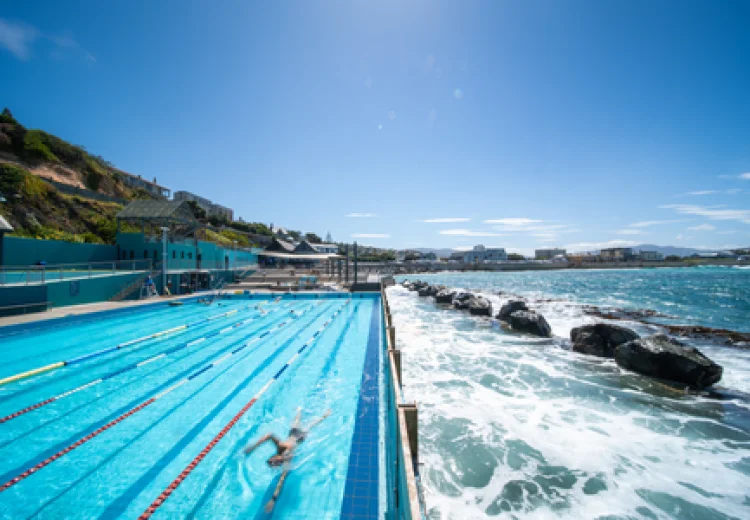
Southern
Population: 350,000
Well known for its beautiful natural scenery, which includes towering mountains, stunning fjords, majestic glaciers, and crystal-clear lakes. The region is also famous for its friendly communities, charming towns, and vibrant cities such as Dunedin and Invercargill.

|
Photo location: Waikato - Credit: Miles Holden |
